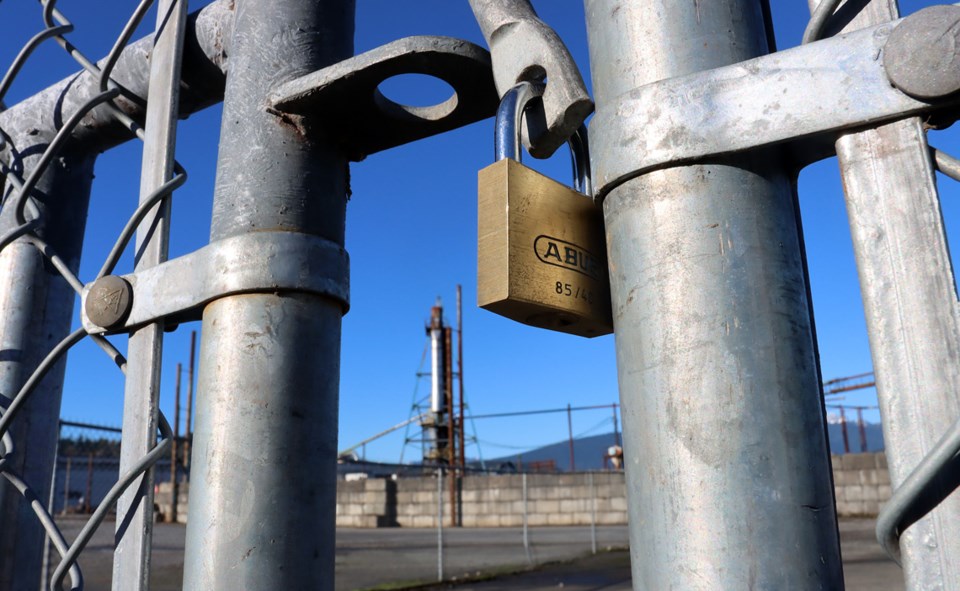Port Moody property owners are looking at a 3.55% increase on their tax bills in July.
The hike is almost 1% less than the 4.5% boost that was initially proposed in a draft budget presented to council in January.
The city’s mayor says the increase is still too high. Some councillors say it should be higher.
But in a recent city poll, a slim majority of residents indicated they’d tolerate a tax increase if it means services won’t be cut.
In a presentation to council’s finance committee meeting on Tuesday, Port Moody’s manager of finance and technology, Paul Rockwood, said staff had been able to save more than $416,000 from the city’s operating budget for the coming year.
Some of that money comes from a projected $140,000 increase in revenue from two electronic billboards that were erected in January, at opposite entrances to the city along the Barnet Highway.
Rockwood said even if that money isn’t realized, the city would be able to dip into provincial grant money allocated to help municipalities around British Columbia make up for revenues and programs lost to the COVID-19 pandemic.
Reductions came from shifting $75,000 to remove dangerous trees from the city’s operating budget to its capital expenses as well as other savings from the police and fire departments along with the library.
Rockwood said staff would be challenged to get the increase any lower without cutting services because almost 2.8% of the anticipated hike is to make up for the loss of $1.25 million in tax revenue from the closure of the Flavelle saw mill last October as the waterfront property is no longer being assessed as heavy industry. The 11.9-hectare site was reclassified in 2017 as business/other in anticipation of its redevelopment by the owner into a dense, mixed-use urban neighbourhood for up to 7,000 residents.
But with Flavelle gone, that plan is in limbo.
Rockwood said the property could now be worth up to $150 million. And while the company was shielded from the additional tax burden of the property’s increasing value by a controversial provincial law designed to protect industrial jobs, he said a supplemental tax charge of $270,000 as well as transfers from the city’s growth stabilization reserve fund will help smooth out the impact of the hit to the city’s tax base.
Mayor Rob Vagramov, who expressed his displeasure about the Flavelle situation, said a 3.55% increase is still too dear for property owners already struggling with the financial impacts of the COVID-19 pandemic. “We should be looking at a crisis budget similar to last year’s budget,” he said, referring to a 3.62% increase that was trimmed to 1.61% in anticipation of reduced costs because of the public health crisis.
But Coun. Diana Dilworth cautioned with the light at the end of the COVID tunnel nearing as vaccine programs roll out, the end of any savings is nigh and residents will have an expectation services like recreation and cultural programming are going to be restored. She said putting off any accounting for those resumed expenses is just “robbing Peter to pay Paul.”
Coun. Meghan Lahti said with recent numbers compiled by the BC government from Statistics Canada showing Port Moody has actually been losing residents in recent years, the city can’t rely on population growth to fuel an increase in tax revenues. “We need to look for alternate ways to increase revenues,” she said.
City manager Tim Savoie said staff have trimmed budgets back as far as they can go. “Anything that would be significant would mean some level of service reduction,” he said. “We’re at a stage where we’d really have to make significant cuts.”
Meanwhile, a survey conducted as part of the city’s public budget consultation process indicates 49% of respondents would support a tax increase if it means maintaining current service levels or even a bigger boost if service is also increased; 38% said they’d tolerate reduced services to keep the tax rate the same as last year, and another 6% favoured even further service cuts if the tax rate is lower than in 2020.
Port Moody’s manager of financial planning, Tyson Ganske, told councillors there was a total of 176 respondents to the online poll through the city’s public engagement portal. Most of those were homeowners, while only 10% were businesses.
Rockwood said the new tax rate, which will cost the average household in Port Moody about $86 — $130 including utilities — must be in place by May 15.
The city of Port Coquitlam is proposing a 2.37% increase in property taxes for the coming year; Coquitlam owners will have a 2.94% rise in July, after council adopted its budget last December.



